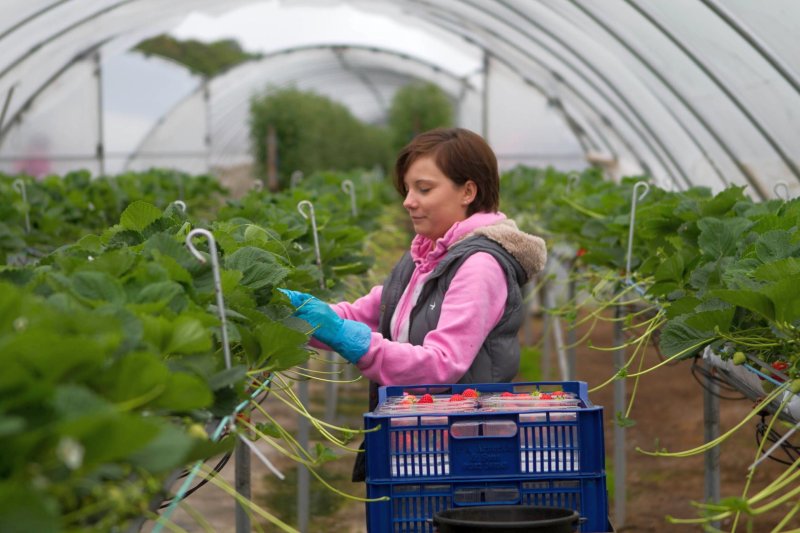
The seasonal worker visa route has been extended until 2029 to address critical labour shortages in the farming industry, the government has announced.
A five-year extension has been applied to the seasonal workers scheme as part of a new government measure announced today (9 May).
A total of 43,000 visas will be available to the horticulture sector in 2025, with another 2,000 visas for poultry.
Further detail of the number of visas available for 2026 to 2029 will be set out later this year, the government said.
Chronic worker shortages has been damaging for the industry, with approximately £60 million worth of crops lost in 2022 due to a lack of labour.
Today's announcement was made as part of a package of measures in response to the Shropshire Independent Review into Labour Shortages.
Up to £50 million of further funding for new technology to support fully automated packhouses has also been announced.
The government confirmed that there would also be support to follow to bring robotic crop pickers on a par with human pickers in three to five years.
Defra Secretary Steve Barclay said: “The measures announced will strengthen this by boosting funding for the cutting-edge technology that will reduce reliance on migrant labour in the long term.
“Businesses do best when they can plan effectively for the future, which is why we’ve extended the seasonal worker visa route until 2029 to give farmers and growers the certainty they need to thrive.”
The NFU welcomed today's measures, saying it would give farming and growing businesses the "vital certainty needed to boost our national food security".
“This will be a huge relief for the horticulture and poultry sectors that rely on seasonal workers," said NFU president, Tom Bradshaw.
"We know that with the correct trading conditions there are significant opportunities for growth and the commitment to a five-year scheme is very positive.
"Moving forward, it is vital to have assurance that the number of visas and the costs associated with accessing them will continue to meet the needs of our food producers."
The government said it had also 'ramped up' its support for the use of automation to reduce the reliance on migrant workers.
This will start with work to fully automate a group of major packhouses in 12 to 18 months, which will improve understanding of the support needed to make fully automated packhouses universally viable.
Information learned from this will help inform the government's planned £50m package of packhouse automation funding, with further details to be announced later this year to cover 2024-25 and 2025-26.
The government said it would also work to improve the attractiveness of the farming industry for domestic workers.
This will include delivering regional recruitment strategies to support jobseekers into roles in food and farming.
The Country Land and Business Association (CLA) said the measures were 'welcome', particularly the extension of the seasonal workers visa scheme until 2029.
However, the group, which represents thousands of farmers and landowners, said greater efforts were needed to attract people into the industry from the UK workforce.
CLA President Victoria Vyvyan said: "Agriculture is an exciting and dynamic sector, but there are considerable skills gaps.
"There needs to be more focus in schools and colleges on making it a more attractive career choice and encouraging those from a non-farming background into the industry."
She added: “Increased automation will help fill labour shortages to an extent, but this requires significant investment and the costs may be prohibitive for some businesses."
